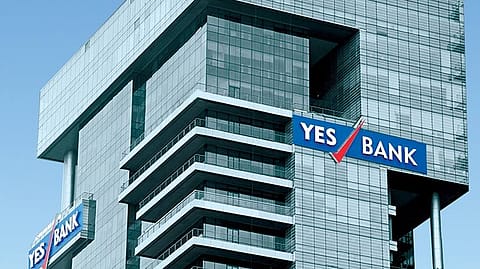YES Bank is on the edge of a precipice
The next few months are crucial for the lender. Any more ratings downgrade is likely to send it into the prompt corrective action (PCA) framework which will check its freedom to conduct business.

On Wednesday, Moody’s Investor Service downgraded YES Bank’s long-term currency issuer ratings, stating that the bank’s ability to raise capital remained suspect. YES Bank share price fell 7% on the news, closing below ₹60 in a long time. The stock has declined nearly over 80% in the last twelve months.
YES Bank’s dollar bonds due 2023 fell 3.2 cents to the dollar to 86.4 cents after Moody’s latest outlook on the bank, logging the biggest decline in nine months.
The latest downgrade comes a little over a month after Indian rating agency ICRA downgraded YES Bank’s long-term ratings and retained a negative outlook.
ICRA’s downgrade came after YES Bank’s gross non-performing advances (GNPAs) and exposures rated ‘BB and below’ increased to ₹41,458 crore as on June 30, 2019, from ₹30,772 crore as on March 31, 2019.
Moody’s downgraded YES Bank’s foreign currency issue ratings to Ba3 from Ba1, long-term foreign and local currency bank deposit ratings to Ba3 from Ba1, foreign currency senior unsecured medium term notes (MTN) programme ratings to (P)Ba3 from (P)Ba1 and baseline credit assessment (BCA) and adjusted BCA to b1 from ba2. The agency added that its outlook on the ratings were negative, where applicable.
With its worsening GNPAs, the negative outlook reflects the risk of further deterioration in the bank’s solvency, funding, or liquidity. Moody’s said that YES Bank will hardly have any room left for internal cash generation in the next 12-18 months as much of the profits it generates will be used up in providing for loan losses. Moody’s also said that the declining share price is further adding to YES Bank’s woes in raising capital from the market.
The Mumbai-based lender has announced that its board will meet on August 30 to approve a proposal to raise more funds. Recently, the bank raised ₹1,930 crore via qualified institutional placement (QIP) and analysts estimate it would need another ₹4,000 crore for its business needs.
Recommended Stories
The prognosis is extremely dire for YES Bank, which is in the throes of raising capital so that it can keep up with regulatory capital requirement to cover its bad loans and more importantly, keep its business generating profits. Says a banking expert: “YES Bank’s situation is slowly snowballing into a big crisis. Even one more downgrade can trigger the central bank’s stringent prompt corrective action (PCA) framework for YES Bank.”
Moody’s also pointed to YES Bank’s asset quality deterioration with gross non-performing loan ratio in June quarter rising to 5% from 3.2%. The proportion of loans on the watch list is about 4% or ₹10,000 crore. These are loans that could turn into non-performing loans in the next two to three quarters.
Moody said that though YES Bank’s funding and liquidity profile has remained broadly stable, it compares weakly to other rated private sector peers in India.